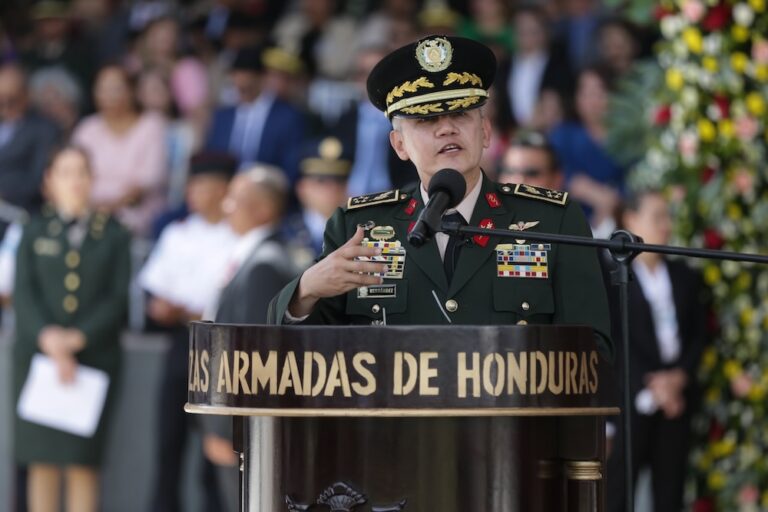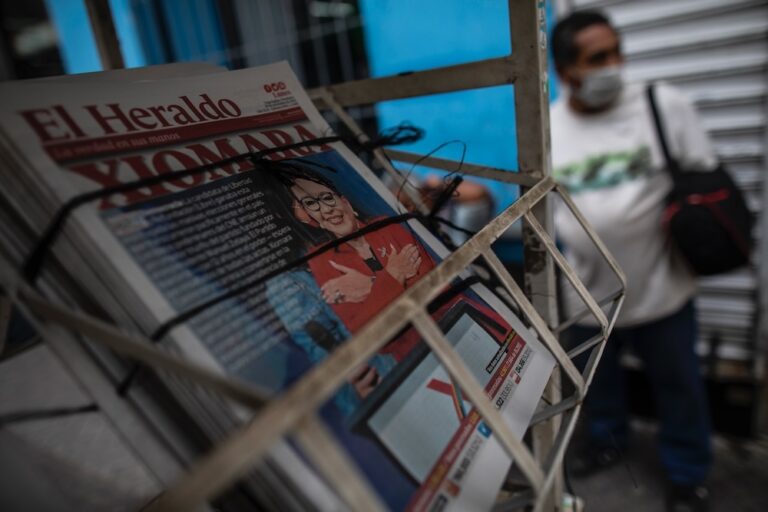A delegation of the IFEX-ALC will attend the Universal Periodic Review of Honduras to express its concern over the current state of free expression in this Central American country.
(AMARC/ARTICLE 19/C-Libre/FLIP/IFEX) – Geneva – 3 November 2010 – The following is a statement by the IFEX-ALC delegation that will attend the Universal Periodic Review of Honduras:
• Nine journalists killed so far in 2010
• Community radio stations are not explicitly recognized by law, affecting the diversity of audiovisual media
• The IFEX Latin America and the Caribbean (IFEX-ALC) asks the state of Honduras to ensure that all cases of journalists’ murders be brought to the attention of the Office of the Special Prosecutor for Human Rights
A delegation of the IFEX-ALC* will attend the Universal Periodic Review of Honduras that will take place on Thursday 4 November 2010, at the United Nations Human Rights Council, to express its concern over the current state of free expression in this Central American country.
So far in 2010, many different national and international organizations, including the Office of the High Commissioner for Human Rights and the Inter-American Commission on Human Rights (IACHR), have denounced the killings of nine journalists in Honduras. Within the region, it is the country where the most journalists have been killed in 2010 (proportionally, based on the number of people living in the country), and where the investigations of these crimes have yet to produce concrete results. Despite this, the state insists on denying the situation and rather links the killings with common and organised crime.
There are constant attacks against those who exercise freedom of expression, yet there are no effective government policies to safeguard their rights.
Honduras is also one of the few countries in Latin America that does not recognize or promote community media in its laws, something which affects the diversity and plurality of forms of communication. Moreover, the state continues to demand that journalists be officially accredited and penalizes defamation, actions that are contradictory to internationally recognized principles on freedom of expression.
The IFEX-ALC calls on the international community to consider the following recommendations:
• That the violations of free expression that took place between June 2009 and January 2010 (the coup d’état and subsequent transition) be investigated
• That the Office of the Special Prosecutor for Human Rights take over the investigation of all killings of journalists
• That concrete safety measures are taken to protect the life and free expression rights of those who practice free of expression
• That the law recognize and promote community media and the democratization of the media
• That crimes of defamation, calumny, libel and slander are decriminalized
• That individuals not be forced to receive accreditation in order to practice journalism
*The IFEX-ALC is an alliance of 17 organisations of the International Freedom of Expression Exchange network in Latin America and the Caribbean that promote and defend the right to freedom of expression in the countries of the region. The delegation to the UPR is lead by C-Libre, ARTICLE 19, AMARC-ALC and FLIP.


